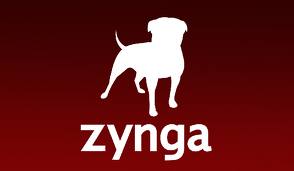Foundering social-gaming giant Zynga returned to gambling headlines recently with news that the company had abandoned its previously announced attentions of entering the fledgling Nevada legalized i-poker market. Zynga’s U-turn surprised many financial analysts, who considered the company’s possible transition into a multi-faceted gaming company as one of the few real opportunities the San Francisco-based firm had to achieve horizontal expansion.
 Zynga’s pullback from real-money online gambling isn’t quite as across-the-board as a lot of stories have reported: the Zynga Plus Casino, available to United Kingdom residents only, churns merrily along. Yet the latest news represents a definite pullback from similar US-based development plans — a tacit acknowledgment, perhaps, that the slower than touted pace of real-money US online gambling opportunities just isn’t a good fit for a company that’s been hemorrhaging red ink in recent quarters.
Zynga’s pullback from real-money online gambling isn’t quite as across-the-board as a lot of stories have reported: the Zynga Plus Casino, available to United Kingdom residents only, churns merrily along. Yet the latest news represents a definite pullback from similar US-based development plans — a tacit acknowledgment, perhaps, that the slower than touted pace of real-money US online gambling opportunities just isn’t a good fit for a company that’s been hemorrhaging red ink in recent quarters.
Zynga’s had a rough go it of late. Among the most recent news regarding the social-gaming giant:
31% year-over-year decline in quarterly revenues from 2013 to 2012, down to $231 million;
$16 million in bottom-line losses for the same quarter (the most recent);
The layoffs of 520 employees, or 18% of Zynga’s workforce;
The shuttering of OMGPOP, the creators, of Draw Something, which Zynga acquired last year in a $200 million deal;
The marked drop of Zynga’s share price to barely $3 a share, when it traded at double-digit valuation after the company’s IPO two years ago;
The discontinuation of a number of Zynga’s popular app-based games, a long list including CityVille 2, Dream Heights, Dream PetHouse, Dream Zoo, Empires & Allies, FishVille, ForestVille, Indiana Jones Adventure World, Mafia Wars 2, Mafia Wars Shakedown, Mojitomo, Montopia, PetVille, Roller Coaster Kingdom, Street Racing, The Ville, Treasure Isle, Vampire Wars, Word Scramble Challenge and Zynga Slingo. Zynga also dropped the titles it acquired in the OMGPOP deal — Cupcake Corner, Gem Rush, Pool World Champ and Snoops;
The settling (amount unspecified) of a lawsuit brought by Electronic Arts over possible infringements by Zynga’s many “Ville” games against EA’s “SIMS” titles.
That’s a long laundry list, and the financial news is technically even worse, as Zynga was able to to take “off book” another chunk of red ink of about $20 million, which is why the latest quarterly losses came in at only $16 million instead of the $28-39 million projected in this earlier Ars Technica piece.
So, ugly times. Now, take into consideration that Nevada only has two sites up and running nearly five months after the state’s online poker market officially opened, and on those sites, barely several hundred players are competing. Delaware’s online poker market is incorporated into private offerings coordinated by the Delaware lottery in conjunction with an established consortium of gambling companies headed by Scientific Games, and it’s not even live yet. And over in New Jersey, all the upcoming online action will be allowed only by existing and approved land-based casino licensees.
Where does Zynga try to establish a foothold in that environment? Nevada’s population of 3 million or so is a tiny pie when considers all the companies that are likely to be licensed in another year or two, and the Zynga app appeared to be at the end of a very long list. (Technically, what Zynga withdraw were the “key employee” applications for six top executives, including former CEO Mark Pincus.)
Right now, Zynga just doesn’t appear to have the money in hand to wait around and build a solid real-money gambling infrastructure while it waits for that or other markets to mature. The internal shakeups at the company also factor in, with new CEO Don Mattrick coming over from Microsoft’s interactive wing. Pincus is still with Zynga, but Mattrick appears to be strongly against Zynga’s involvement in new online-gambling measures, with all the company’s execs now toeing that corporate line.
The company’s earnings and press conferences following the release of the ugly second-quarter results includes confirmation that Zynga plans to not pursue the fledgling US online gambling market. According to a Zynga statement, “The company’s biggest opportunity is to focus on free-to-play social games. While the company continues to evaluate its real-money gaming products in the UK test, Zynga is making the focused choice not to pursue a licence for real-money gaming in the US.”
However, there are still signs of a rift amid the company’s current driftless woes. Former CEO Pincus, appearing at an Israeli rooftop Q&A and answering questions about Zynga’s lagging fortunes, commented that he’s “pretty bored with all games.”
That prompted plenty of snark from the sidelines, such as from all-star poker industry observer Kevin “Kevmath” Mathers, who quipped on Twitter, “He appears to be bored with profits as well.”
Yet such is the state of Zynga. It appears as nothing more than a bloated company that’s lost its way, still not cognizant of the fact that a social-gaming company can only be as successful as its audience and business partners allow it to be. Such companies are inherently depend on third-party revenue streams, which are notoriously fickle.
Zynga had the chance to establish itself as a real-money gambling force in a newly opened US market. That’s probably not going to happen now.
100% up to $3,000 Bonus
Bovada is our most recommended ONLINE CASINO and POKER ROOM for US players with excellent deposit options. Get your 100% signup bonus today.



Leave a Reply
You must be logged in to post a comment.